
Conversations in Complexity
BH
In these podcasts we try to introduce health care challenges, especially the ones dealing with the care of patients living with concurrent chronic conditions. Moreover, we try to discuss the policies we need to adopt to make patient care experience more realistic.
- 21 minutes 2 secondsBetter Dementia Care: Connecting Science to Action
In this podcast, Ross Upsh
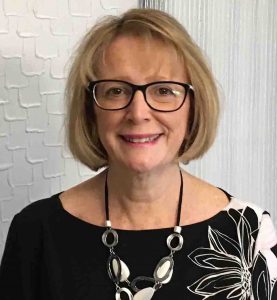 ur interviews Gail Elliot about dementia care and the state of dementia care and how it can measure up to expectations that will provide the kind of care which takes into account the individual’s entirety as a human, focusing on personal narrative, brain, environment, needs, abilities and disease.
ur interviews Gail Elliot about dementia care and the state of dementia care and how it can measure up to expectations that will provide the kind of care which takes into account the individual’s entirety as a human, focusing on personal narrative, brain, environment, needs, abilities and disease.
In this podcast, Ross Upshur interviews Gail Elliot about dementia care and how it needs to measure up to societal expectations, providing the kind of care that takes into account the individual’s entirety as a human, focusing on personal narrative, brain, environment, needs, abilities, interests and disease. Most importantly they will discuss the importance of helping each person to live with meaning, purpose, joy, higher self-esteem (by enabling abilities), choice and dignity.In the interview, Gail believes we have enough science, and the ability, to deliver good (non-pharmacological) dementia care. Using research from diverse disciplines, she talks about how the science/the research clearly shows that we can enable the abilities of each individual (combating excess disability that comes from taking over tasks and contributing to disuse), thereby enabling the person with dementia and their families and service providers alike. We need, as she puts it, to borrow all the small bits and pieces of precious science found in the books, academic journals and best practice guidelines and build the basics based on this multidisciplinary evidence that focuses on both the person and the environment, including a team approach that involves organizational support and commitment. These fundaments provide the basics, and “how-tos” of good dementia care.
Gail provides practical examples of how to incorporate science into practice and how to equip care providers for their job. In doing so, those with dementia have a sense of purpose in their daily lives and needs are met (such as boredom, loneliness and lack of success), thus preventing the behaviours commonly seen in dementia, such as agitation, wandering or exit seeking. Rather than thinking of this as “extra work”, carers are equipped with the tools they need – including new ways of thinking – and spend more time enriching the lives of those in their care and spending less time writing reports about the behavioural upsets. Moreover, families are comforted knowing that their loves ones are happier and not only cared for, but enabled, engaged and enriched in their care environments. You might say, with good care, our mission is accomplished.
Gail bases her model on preparing the environment. This involves setting each person up for success, based on understanding the plethora of research that is already available from diverse disciplines. When staff are educated and supported, and share the details related to each person in their care, including their history, and details about their needs, interests, preferences, abilities and each individual’s life story, needs are addressed, and generally, we see higher levels of functioning and enhanced social engagement. The physical environment must look, feel and smell like home, with each space looking like its purpose. The feel of home includes the roles and routines that were familiar to each person with opportunities to be engaged in activities that have been adapted for successful outcomes and things to do, tailored to needs, interests and abilities that are available and accessible throughout each day. The goal is to help each person to be the best he or she can be, and this can only be achieved when individuals, teams and organizations work together (Caspar, Cooke, Phinney, & Ratner, 2016).
Gail Elliot is a Gerontologist, Author, Educator and Dementia Specialist. She retired from McMaster University, Ontario, Canada, in 2012 with the purpose of changing the face of dementia from one of loss to one of enabled abilities. Her goal is to move the science, the research, from the bookshelves and put the knowledge into the hands of those who need it, thereby enhancing the lives of those living with dementia. Gail teaches and speaks internationally. She has written articles and books and created many resources and tools which are aimed at enabling the abilities of both the person with dementia and those who provide support and care. To learn more about Gail’s work, you may visit her website from here.
References:
Caspar, S., Cooke, H. A., Phinney, A., & Ratner, P. A. (2016). Practice Change Interventions in Long-Term Care Facilities: What Works, and Why? Canadian Journal on Aging / La Revue canadienne du vieillissement, 35(3), 372-384. doi:10.1017/S071498081600037418 February 2020, 11:00 pm - 17 minutes 56 secondsWhat it Means to be a Good Academic Citizen – Part 2
The academic research environment is changing
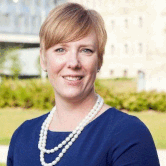 and researchers report struggling to adapt in order to be successful. Funding shortfalls are perennial, but what systemic shifts should occur to enable researchers at all career stages to be productive and successful?
and researchers report struggling to adapt in order to be successful. Funding shortfalls are perennial, but what systemic shifts should occur to enable researchers at all career stages to be productive and successful?
Upon publishing “Healthy research ecosystem – healthy researchers? The researcher as an organism of focus within a ‘research ecosystem’” in Academic Matters in Fall 2019 issue, Ross Upshur and Michelle Nelson, convened to discuss themes from their paper as well as a number of other academic matters that have been issues of concern for academics far and wide for a long time.
In the first part of the podcast, Ross and Michelle discussed some of the themes from the paper and the conversation focused on issues such as committee and panel memberships, reviewing manuscripts and grants, research funding, research as a career, training PhD students, self-interest vs. community interest in research, paper citations, academic citizenship, research ecosystem management, ways to retire from clinical practice and research, research culture, and more.
In this second part of the podcast on academic citizenship, Ross and Michelle, explore the opportunities and challenges of academic citizenship in a changing research ecosystem. They also touch upon subjects such as equity within the research ecosystem, gender, career advancement, successful PhD programs, mentorship, being a principal investigator, and much more. These issues are experienced by researchers on a daily basis, whether they are at early-, mid- or late-research-career stages. Furthermore, their conversation highlights a number of pressing issues, including but not limited to, the importance of explicitly training early career scholars as what constitutes a successful research career and extending it to create a culture that values contributions throughout the research life cycle. The entire field of research metrics used for evaluating research performance, (e.g. counting published papers, citations and article level metrics such as the H-index etc.), seems to require rethinking.
Link to “What it Means to be a Good Academic Citizen – Part 1”.
10 December 2019, 9:51 pm - 18 minutes 48 secondsWhat it Means to be a Good Academic Citizen – Part 1
Upon publishing “Healthy research ecosystem
 – healthy researchers? The researcher as an organism of focus within a ‘research ecosystem’ in Academic Matters in mid-March 2019, Ross Upshur and Michelle Nelson, convened to critique themes from their paper and discuss a number of other academic matters not originally mentioned in the paper but have boggled the minds of many academics far and wide for a long time.
– healthy researchers? The researcher as an organism of focus within a ‘research ecosystem’ in Academic Matters in mid-March 2019, Ross Upshur and Michelle Nelson, convened to critique themes from their paper and discuss a number of other academic matters not originally mentioned in the paper but have boggled the minds of many academics far and wide for a long time. In mid-March 2019, Ross Upshur and Michelle Nelson published “Healthy research ecosystem – healthy researchers? The researcher as an organism of focus within a ‘research ecosystem’” in Academic Matters. The paper, as themselves put it “explores issues of relevance to higher education and is a forum for thoughtful and thought-provoking” discussions and consideration of academia’s future direction. The paper is a response to the ever-changing research environment that researchers find rather difficult to adapt in order to thrive and maintain a solid research. In the podcast, the duo try to discuss some of the subjects mentioned in the report by David Naylor titled: Investing in Canada’s Future: Strengthening the Foundations of Canadian Research such as “research ecosystem”, “life-cycle approach” and also elaborate on other relevant subjects that matter most to the academia and researchers alike.
In part one of the podcast, subjects such as committee and panel memberships, reviewing manuscripts and grants, research funding, research as a carrier, training PhD students, self-interest vs. community interest in research, paper citations, academic citizenship, research ecosystem management, ways to retire from clinical practice and research, research culture, and more are all discussed modestly.
Link to “What it Means to be a Good Academic Citizen – Part 2”
29 October 2019, 5:38 pm - 21 minutes 30 secondsHealth Leadership Perspectives to Deploy a Seamless Integrated Care for the Older Adults in Catalonia
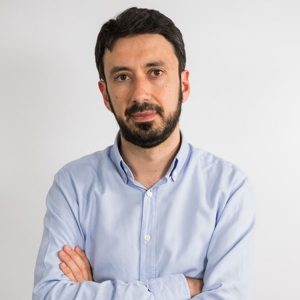 In this podcast, Ross Upshur, interviews Marco Inzitari, discussing the mechanisms and nuts and bolts of integrated care provided to the elderly population in Barcelona, Catalonia, Spain. Dr. Inzitari is the current President of the Catalan Society of Geriatrics and Gerontology and the Director of Intermediate Care, Research and Teaching of Parc Sanitari Pere Virgili in Barcelona.
In this podcast, Ross Upshur, interviews Marco Inzitari, discussing the mechanisms and nuts and bolts of integrated care provided to the elderly population in Barcelona, Catalonia, Spain. Dr. Inzitari is the current President of the Catalan Society of Geriatrics and Gerontology and the Director of Intermediate Care, Research and Teaching of Parc Sanitari Pere Virgili in Barcelona.
In this podcast, Dr. Marco Inzitari gives his first-hand account of the health and social care services provided to the elderly population in Barcelona and Catalonia, and elaborates how these services address the issues of frailty, chronic diseases, loneliness, etc. In doing so, Dr. Inzitari sets an example of a healthcare system that has traversed academic, public and private sectors and even has integrated a coherent and uniform internet-based repository of medical records into the healthcare system to provide a seamless health and social care to its elderly population.
Work and Education
Marco Inzitari, MD, PhD, a specialist in geriatrics, was trained in epidemiology of aging at the Universities of Florence, Italy, and University of Pittsburgh, USA, and in management and leadership at ESADE Business School in Barcelona. He currently serves as the Director of Intermediate Care, Research and Teaching of Parc Sanitari Pere Virgili, and as an Associate Professor of Medicine at the Universitat Autònoma de Barcelona (UAB). He is also the PI of the Research on Aging, Frailty and Transitions in Barcelona (RE-FiT Barcelona) part of the Vall d’Hebrón Institute of Research (VHIR). He is the current President of the Catalan Society of Geriatrics and Gerontology. Moreover, Dr. Inzitari serves as an expert advisor for different master-plans related to chronic diseases and integrated care of the Catalan Government, and is part of the Clinical Management Section of the Catalan Society for Healthcare Management and board member of the European Delirium Association.Publications
Being the principal investigator of a number of ongoing publicly-funded research projects, Dr. Inzitari has authored a considerable number of international publications on frailty, cognitive and physical functions in the elderly, and on care models and organization for older adults with chronic conditions. He is also a member of the editorial board of The Frailty and Aging Journal. Here are some of Marco’s publications indexed in PubMed, so far.6 September 2019, 5:53 pm - 21 minutes 25 seconds“I was there for her”: A Caregiver’s Story
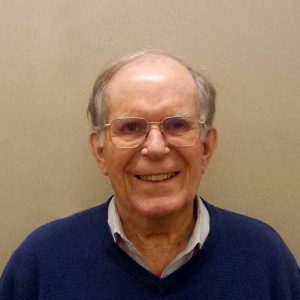 Gordon MacGregor, a member of the Alternate Level of Care Patient and Caregiver Council, in an interview with Ross Upshur reflects upon his personal experience taking care of his wife in a span of nearly 30 years. His experience with the health system is what thousands of patients and family caregivers undergo on daily basis. The interview highlights both positive and not so positive aspects of care and the need to take care of the instances that patients might find rather inconvenient or challenging to overcome.
Gordon MacGregor, a member of the Alternate Level of Care Patient and Caregiver Council, in an interview with Ross Upshur reflects upon his personal experience taking care of his wife in a span of nearly 30 years. His experience with the health system is what thousands of patients and family caregivers undergo on daily basis. The interview highlights both positive and not so positive aspects of care and the need to take care of the instances that patients might find rather inconvenient or challenging to overcome.Mr. Gordon MacGregor has personal experience with ALC as a bereaved caregiver. His devotion to a life taking care of his wife struggling with a severe type of mental disorder throughout the years, as well as his experiences as an advisor for different hospital councils, makes his experience indispensable in helping us understand the caregiver experience.
In his ‘‘Books and Men’’1, Sir William Osler (1849–1919) wrote that “ To study the phenomenon of disease without books is to sail an uncharted sea, while to study books without patients is not to go to sea at all. The same analogy could hold strong in patients and patient caregivers’ relation with the healthcare system and efforts to improve it. Gordon’s experience with the health care system is what Canadians might undergo at some point in their life when they seek professional help to regain their health. To make this experience positive for all of us at all times, stakeholders within and outside the healthcare system may take opportunities like this to examine the nature of patients and patient caregiver experience.
References and footnotes:
1- “Books and Men” in Boston Medical and Surgical Journal (1901)2- “Justice of the Peace”: This term is named a couple of times in the audio file and it refers to the body of law in Ontario that has the authority to override the decision of a patient with mental illness who refuses to receive medical care and might have the potential to be danger to self or others. In such circumstances, The Justice of Peace can issue a Form 1 which is taken to the police and they act upon it and take the ill person to the hospital. It does not get the patient admitted; that decision is made by the attending physicians in the hospital.
3- “Beyond the Cuckoo’s Nest” is the Centre for Addiction and Mental Health’s (CAMH) longest-standing educational outreach program to high school students and it aims to increase awareness among youth of the causes, treatments, signs, symptoms, and interventions for mental illness, including addiction. The program was developed in 1987 by nurse case managers at the former Clarke Institute of Psychiatry—one of the founding partners of CAMH.
4- The names of the hospitals and long-term care facilities that had been named in the podcast file have been replaced by a soft background noise for ethical concerns.
4 June 2019, 8:54 pm - 18 minutes 48 secondsStriving for a Better Healthcare for the Elderly in Canada; An interview with Jane Barratt, the Secretary General of the International Federation on Ageing
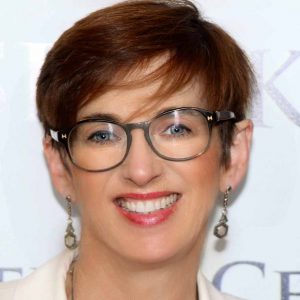 Jane Barratt in an interview with Ross Upshur reflects on different aspects of elderly care and explains how it could be improved in Canada. In the interview, she gives an example of other countries and how they have been successful in laying the foundation for a more robust elderly care.
Jane Barratt in an interview with Ross Upshur reflects on different aspects of elderly care and explains how it could be improved in Canada. In the interview, she gives an example of other countries and how they have been successful in laying the foundation for a more robust elderly care.
In this interview, Jane Barratt, the Secretary General of the International Federation (IFA) on Ageing, describes how her interest in roams of care and allocation of services engaged her in the area of ageing and caregiving. She later highlights the sources of the problems that impact decision-making around the allocation of services and says they arise from different understanding and outlooks in the conversations among different health sectors although they all seem to be talking about the same topic. On equitable allocation of services, she exemplifies Australia’s age-care system and compares it to that of Canada and how they are different in this respect.Jane Barratt is one of the IFA’s 15 international directors. Currently, she runs IFA’s Toronto-based office in Bridgepoint Active Healthcare, Sinai Health System. Jane has over 35 years of public and private sector experience in ageing and disability, aged care, public health and community services. Dr. Barratt tries to strengthen relationships between government, NGOs, academia, and industry to influence policy and improve the quality of life of older people. She is a strong contributor to international dialogue on the social, political, cultural and physical environments that impact the lives and human rights of older people. Dr. Barratt represents the IFA at the United Nations Economic and Social Council. For a full bio, please follow this link.
Dr. Barratt is a Churchill Fellow, and she was recently awarded the Queen Elizabeth II Diamond Jubilee Medal in Canada in recognition of her efforts to enhance understanding of ageing, engage governments and the private sector, and improve the quality of life of older people.
To listen to a public lecture by Jane Barratt published on the University of Western Australia website, please follow this link. The lecture is titled: How to Age Well: creating age-friendly environments to support healthy ageing.
To view a selection of presentations by Dr. Jane Barratt, please follow this link.
11 February 2019, 5:08 pm - 18 minutes 7 secondsWhen All Roads Seem to Lead to Healthcare Complexity
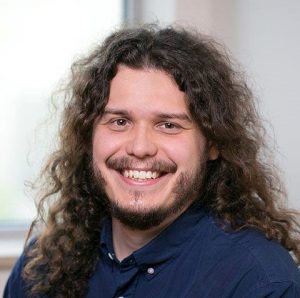 ST: A Palliative Approach to Decision Aids to Help Improve Patients’ Medical Choices
ST: A Palliative Approach to Decision Aids to Help Improve Patients’ Medical Choices
Pete Wegier in this interview with Ross Upshur discusses complexities of the end of life care and how coordination in this care setting could be optimized by the use of new communication technologies. Interestingly, his journey from computer science to cognitive psychology, to medical decision making and later to the space of palliative care has equipped Pete with tools that could help untangle some of the problems in this most complex area in health care.In the podcast, Pete also discusses how his research interests concern medical decision making, focusing on the effective communication of information to both patients and physicians to improve understanding in medical choices. Specifically, he focuses on the use of simulated experience as a decision aid for medical decision making; the effective communication of quantitative information in healthcare, specifically through data visualization; and how healthcare teams collaborate in distributed settings via online communication platforms.
Dr. Pete Wegier is a medical decision scientist at the Temmy Latner Centre for Palliative Care and the Lunenfeld Tanenbaum Research Institute at Mount Sinai Hospital in Toronto, and an assistant professor in the Department of Family and Community Medicine at the University of Toronto. A cognitive psychologist by training, Dr. Wegier’s work focuses on techniques for the early identification of patients that may benefit from a palliative approach to their care, as well as the design and creation of patient education materials and decision aids to help improve patients’ medical choices.
Pete holds a PhD in psychological science and a BSc and MSc in computer science. He has undertaken postdoctoral training at the University of Missouri.
Here are some of Pete Wegier’s publications indexed in ResearchGate, so far.
27 November 2018, 8:40 pm - 13 minutes 6 secondsThe Need for Intra- and Inter-sectoral Collaboration in Healthcare, in Interview with Michelle Nelson
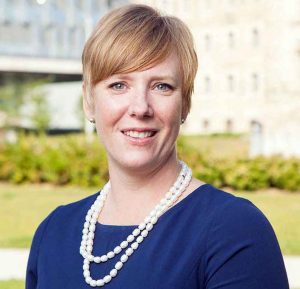 Michelle Nelson in an interview with Ross Upshur discusses the importance of intra- and inter-sectoral collaboration in healthcare and explains how the voluntary sector could be engaged to support improved patient and family experiences and the outcomes.
Michelle Nelson in an interview with Ross Upshur discusses the importance of intra- and inter-sectoral collaboration in healthcare and explains how the voluntary sector could be engaged to support improved patient and family experiences and the outcomes.In a recent interview with Ross Upshur, Michelle Nelson, a Research Scientist at Research Collaboratory, Lunenfeld-Tanenbaum Research Institute, explained about her research, the importance of intra- and inter-sectoral collaboration in health care, engagement of the voluntary sector to support improved patient and family experience and the patient outcomes.
Michelle has been actively pursuing development of a complexity and stroke rehabilitation research network. Her tireless efforts recently led to holding a meeting attended by 43 researchers, policy-makers and clinicians. The meeting initially generated 120 potential research questions, from which 16 high-priority questions were identified focusing on complexity characteristics including multimorbidity, social determinants, patient characteristics, social support and system factors (1). In this recent work, Michelle and her colleagues put the emphasis on expanding the kind of research that focuses beyond the single disease approach, and try to help understand complex patients and their care needs. This approach, as they put it, will not only help stakeholders to better understand and provide integrated stroke rehab care for complex patients but it will also help improve patient outcomes that would ultimately lead to a more developed and advanced health care system.
Dr. Nelson is a Research Scientist within the Lunenfeld-Tanenbaum Research Institute in Toronto, Canada. She also holds academic appointments in the Institute of Health Policy, Management and Evaluation at the University of Toronto, and Ryerson University in the School of Nursing. Her research is concentrated on patient complexity (the intersection of health conditions and social determinants); specifically examining issues related to the management of patient complexity, health profession education/collaborative practice, and community reintegration.
From 2005 – 2009 she was the Research Director for a Health Canada funded Interprofessional Education program within geriatrics. She was the Principal Investigator for two Canadian Institutes of Health Research grants focused on patient complexity and rehabilitation. As a result, she convened national rehabilitation experts and stakeholders to develop a multidisciplinary, multisectoral research agenda specific to patient complexity in stroke rehabilitation. In 2014, Dr. Nelson received a $600,000 grant to examine how the voluntary sector could be engaged to support improved patient/family experiences and outcomes.
So far, she has published over 40 articles and reports specific to issues of complexity, clinical practice, rehabilitation, collaboration, and the role of the voluntary sector in meeting patient needs. She is a sought after committee member for rehabilitation strategic planning, clinical guideline development and knowledge translation. In 2017, she was a visiting professor at the Queensland University of Technology, engaging colleagues in collaborative work related to patient complexity. Michelle was elected to the Board of Governors for the World Stroke Organization and nominated to the Executive in August 2018.
Some of Michelle’s papers indexed in Google Scholar by September 2018.
Reference:
- Nelson ML, McKellar KA, Munce S, Kelloway L, Hans PK, Fortin M, et al. Addressing the Evidence Gap in Stroke Rehabilitation for Complex Patients: A Preliminary Research Agenda. Arch Phys Med Rehabil. 2018;99(6):1232-41.
18 September 2018, 6:30 pm - 19 minutes 27 secondsSimplifying the Complexity of Palliative Care
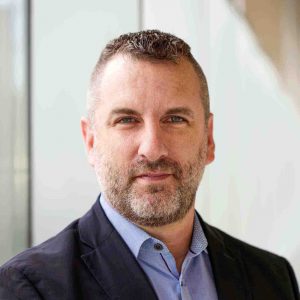 Jeff Myers, in this interview with Ross Upshur, discusses the evolution of palliative care and the evidence that has accumulated outlining its impact on outcomes for patients, families, and systems. With early efficacy studies having focused on end-of-life experiences for patients with cancer, strong evidence now clearly delineates a role for palliative care from the time of diagnosis for any person with serious illness and their family. Serious illnesses are those that are incurable and progressive and include but not limited to heart failure, COPD, chronic kidney disease, neurodegenerative diseases, dementia, frailty as well as metastatic cancer. No longer should palliative care be thought of as the alternative to disease-focused care, it is as an added layer of support that must be provided alongside disease-focused care.
Jeff Myers, in this interview with Ross Upshur, discusses the evolution of palliative care and the evidence that has accumulated outlining its impact on outcomes for patients, families, and systems. With early efficacy studies having focused on end-of-life experiences for patients with cancer, strong evidence now clearly delineates a role for palliative care from the time of diagnosis for any person with serious illness and their family. Serious illnesses are those that are incurable and progressive and include but not limited to heart failure, COPD, chronic kidney disease, neurodegenerative diseases, dementia, frailty as well as metastatic cancer. No longer should palliative care be thought of as the alternative to disease-focused care, it is as an added layer of support that must be provided alongside disease-focused care.This expansion of relevance raises several questions and creates both opportunities and challenges for the growing discipline. What is it about the palliative care approach that makes such a difference in the experience of patients and families? Can the palliative care needs of patient populations be met by a limited number of palliative care clinicians? What changes in our medical training programs as well as those of other professions would better prepare our clinicians of the future to address complex palliative care needs? Jeff and Ross discuss these and other questions as they address the complex nature of palliative care clinical service and educational delivery.
Dr. Jeff Myers, MD, MSEd, CCFP(PC), is a palliative medicine physician who joined the Sinai Health System Toronto in July 2017 as Site Lead for the Bridgepoint Palliative Care Unit. He is an Associate Professor at the University of Toronto and for the past five years has been Head of the Division of Palliative Care within the Department of Family and Community Medicine. He currently holds the W. Gifford-Jones Professorship in Palliative Care and his academic interests include complexity theory in palliative care, person-centered decision-making and learner assessment in competency-based education.
This is the link to Dr. Jeff Myers academic biography, research interests, publications, and awards.
10 July 2018, 1:34 pm - 18 minutes 17 secondsSafer Opioid Prescribing and Non-opioid Alternatives for Chronic Pain
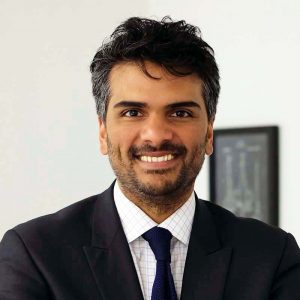 Abhimanyu Sud, in an interview with Ross Upshur, talks about the current opioid crisis, the challenges and the opportunities to respond to the crisis at different levels including improved prescriber education and use of evidence-based non-opioid alternatives for chronic pain.
Abhimanyu Sud, in an interview with Ross Upshur, talks about the current opioid crisis, the challenges and the opportunities to respond to the crisis at different levels including improved prescriber education and use of evidence-based non-opioid alternatives for chronic pain.Abhimanyu Sud is the Academic Director of Safer Opioid Prescribing at Continuing Professional Development at the University of Toronto. A graduate of Yale University and the University of Toronto, he is a community-based family doctor who also has a focused practice in comprehensive chronic pain medicine. He has played an active role in advocating for comprehensive and effective solutions for Canada’s opioid crisis and in particular for the role of evidence-informed education in chronic pain and opioid prescribing at all levels of medical training. He is a Lecturer at the Department of Family and Community Medicine at the University of Toronto’s Faculty of Medicine.
Sud’s current work is focused on educational and research interventions around opioid prescribing in the context of chronic pain. He is also working on projects around non-opioid alternatives for the management of chronic pain.
The podcast is greatly informative of what exactly Dr. Sud is currently doing, especially on the use of non-opioid alternatives for the management of chronic pain.A glance at Abhimanyu’s article on the National Opioid Crisis in PubMed.
22 May 2018, 6:59 pm - 21 minutes 33 secondsIs There a War on Science? Philosopher Maya Goldenberg Says No
Maya Goldenberg, in an interview with Ross Upshur,
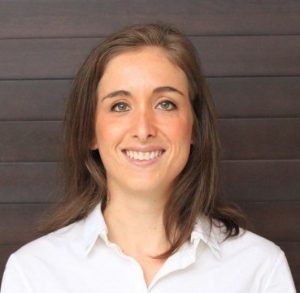 talks about her academic journey from a close look at evidence-based medicine and its philosophical issues to a feminist approach to the philosophy of science. Later on, Maya will discuss her research interest in fundamental issues related to public health policy such as vaccine hesitancy. The interview culminates to a very fascinating view on the state of science in the current political world.
talks about her academic journey from a close look at evidence-based medicine and its philosophical issues to a feminist approach to the philosophy of science. Later on, Maya will discuss her research interest in fundamental issues related to public health policy such as vaccine hesitancy. The interview culminates to a very fascinating view on the state of science in the current political world.
Maya Goldenberg is an Associate Professor of Philosophy at the University of Guelph. Her research in philosophy of medicine and philosophy of science examines the intersection between science and values, and puts the fundamental epistemic question “How do we know what to believe?” in social and political context. She is currently writing a book on vaccine hesitancy and public understanding of science. Dr. Goldenberg is also a Graduate Faculty Member at the Institute for the History and Philosophy of Science and Technology at the University of Toronto.
Here are some of Maya’s articles indexed on PubMed so far.
For a more complete list of Maya’s publications, including articles and books, please click here.
17 April 2018, 9:29 pm - More Episodes? Get the App